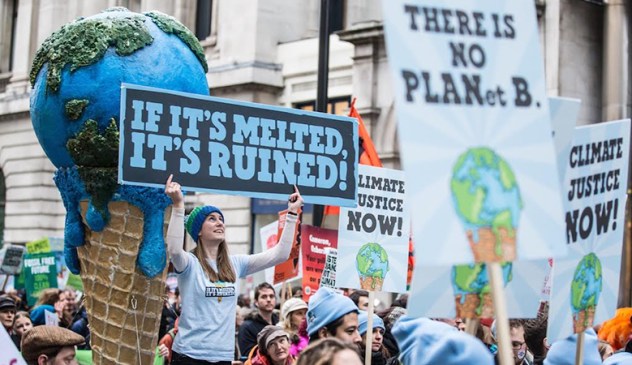Sustainability among brands is undergoing a renaissance as eco-conscious consumers demand ethical practices, responsible behaviour and innovation to cut excess. In response, brands are creating products, services, packaging, and new systems that are as desirable and functional as they are eco-friendly. Make way for the New Sustainability.
Late in 2018, the UN Intergovernmental Panel on Climate Change reported that the world has just over a decade to bring climate change under control, and that unprecedented efforts to tackle emissions will be needed. This came after a year of heatwaves across four continents when even the Arctic Circle saw wildfires.
Sustainability as we knew it is over. And brands and consumers are starting to respond in a more proactive and scaled way than ever before. The Innovation Group UK charted this shift towards normalized “radical” sustainability in its 2018 report ‘The New Sustainability: Regeneration.’ It finds that, in order for the planet to thrive, brands and consumers need to look beyond just “doing less harm.” The future of sustainability lies in regeneration; restoring ecosystems, rebalancing our climate, and building economies that thrive, while allowing people and the planet to thrive, too.
Brands are playing a decisive role in this regeneration by wielding their resources, influence and innovation expertise to effect change on a global scale. While much of the effort has an operational focus, pioneering brands are finding innovative ways to build regenerative sustainability into their products and services.

At its simplest, this means giving consumers more positive choices. Outdoor retailer North Face’s Cali Wool collection offers a negative net carbon impact. The brand’s Climate BeneficialTM wool is sourced from Bare Ranch, which uses regenerative agricultural methods to sequester more carbon dioxide than is emitted.
The landscape from major brands to startups is full of new innovation. Malta-based NGO Poseidon is planning a different approach, leveraging the retail sector to introduce blockchain-powered carbon credit trading to the high street. Poseidon’s technology allows shoppers to add microdonations to a purchase, which are then routed to environmental projects.
In May 2018, it conducted a pilot with Ben & Jerry’s Scoop Shop ice-cream store in London’s Soho. Shoppers were invited to add a penny to their purchase, matched by the store, to fund forestry projects in Peru.
Global consumers are now operating with a sustainability mindset, even if they struggle to make it a lifestyle. The “right” options are not always convenient, affordable, or accessible. Products and services like these, that provide convenient, effortless ways to contribute to regeneration efforts, will find favour with the mindful consumer.
This article is part of a series on climate change in view of COP24


